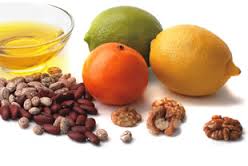记忆方法
记忆“nutrient”可以通过创造一个形象的场景:想象一个“nut”(坚果)充满了“ri”活力,因为坚果富含营养,即它是一种“rient”(营养素)。这样的联想可以帮助记忆单词的意思:提供或包含营养的。
以上内容由AI生成, 仅供参考和借鉴
中文词源
nutrient 营养的,滋养的
来自拉丁语nutrire,滋养,抚养,喂奶,词源同nourish,nurse.引申词义营养物,营养品。
英语词源
- nutrient (n.)
- "a nutritious substance," 1828, noun use of adjective (1640s) meaning "providing nourishment," from Latin nutrientem (nominative nutriens), present participle of nutrire "to nourish, suckle, feed, foster" (see nourish).
权威例句
- 1. The roots transmit moisture and nutrient to the trunk and branches.
- 根将水分和养料输送到干和枝.
- 2. Magnesium is the nutrient element in plant growth.
- 镁是植物生长的营养要素.
- 3. There is still great interest in boron as an essential plant nutrient.
- 迄今硼作为植物的必要营养元素仍极其重要.
- 4. The potato is a good nutrient medium for many bacteria.
- 马铃薯对许多细菌是一种良好的培养基.
- 5. Every individual has a physiological requirement for each nutrient.
- 每个人对每种营养成分都有一种生理上的需要.
